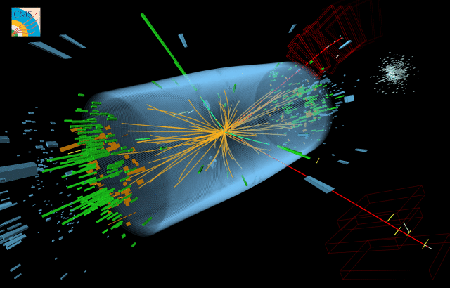Dr Tara Shears is a particle physicist and Reader at the University of Liverpool
“It’s Nobel prize week – the pinnacle of the awards season where the best advances in science are recognised. This year’s physics prize has been awarded to Serge Haroche and David Wineland for their experimental work in opening up the often bizarre world of quantum physics, and laying the foundations for quantum computers and atomic clocks.
But why does that matter? Aren’t the Nobels a little old fashioned now? And why should you care about something as esoteric as quantum physics?
Well, yes, perhaps the Nobels are old fashioned. Their maximum of three winners in any discipline reflects a time when science was small scale and distinct. You either did physics or chemistry or medicine when the prizes were established, no blurring-the-boundaries interdisciplinary work.
Science has become an enterprise
And perhaps at that time it was easier to trace the genesis of an idea or result to a particular person. Science has since become an enterprise with experiments that can sometimes number hundreds or even thousands of scientists as members.
But what keeps the Nobels relevant is what they reward – truly good, exciting science.
From the Nobel point of view, prize winning science is something that approaches you from left-field, something completely unexpected that either knocks your existing understanding for six or reveals starkly that what you thought you knew was nothing more than a shadow of something greater. It can be an experimental result that has no reason being there, because it’s so outside your expectations of how the world should behave.
It could be an entirely new experimental technique that unpeels the universe and reveals it in a new light, like this year’s Nobel prize recognised. It might be a theoretical idea that turns our understanding of the universe, suddenly, on its head.
As a scientist, these are the discoveries you dream of. And the field of quantum physics is full of them.
You might think that quantum physics is esoteric and far removed from your life, but you’d be wrong. Quantum physics governs how silicon chips work and that means your phone, your ipod, your laptop and the vast computer networks with which countries trade shares, and move money. On a more fundamental level, the quantum world is the world of the subatomic universe. We explore it in my field, particle physics, because it is the best way we have of comprehending the structure, behaviour and evolution of the universe.
Yielding the unexpected
This world is so unexplored, so capable of yielding the unexpected and so deeply fundamental to the nature of the universe. This unknown territory, like an unmarked map, is what makes the quantum world so fascinating. It drives so many of us to devote our working lives to trying to understand it better – not because we’ll win Nobel prizes, but because we are compelled to explore the unknown to try to make better sense of it. And breakthroughs like the recent Higgs discovery highlight how very wonderful and strange that world can be.
It takes bravery, extreme skill and luck to revolutionise science in the way that Nobel prizes demand, and more than a share of genius to make it happen. That rare combination is what the Nobel prizes reward, and long may they continue to do so.
We need great science to make progress – and I think that means we need Nobel prizes to celebrate it too.”
